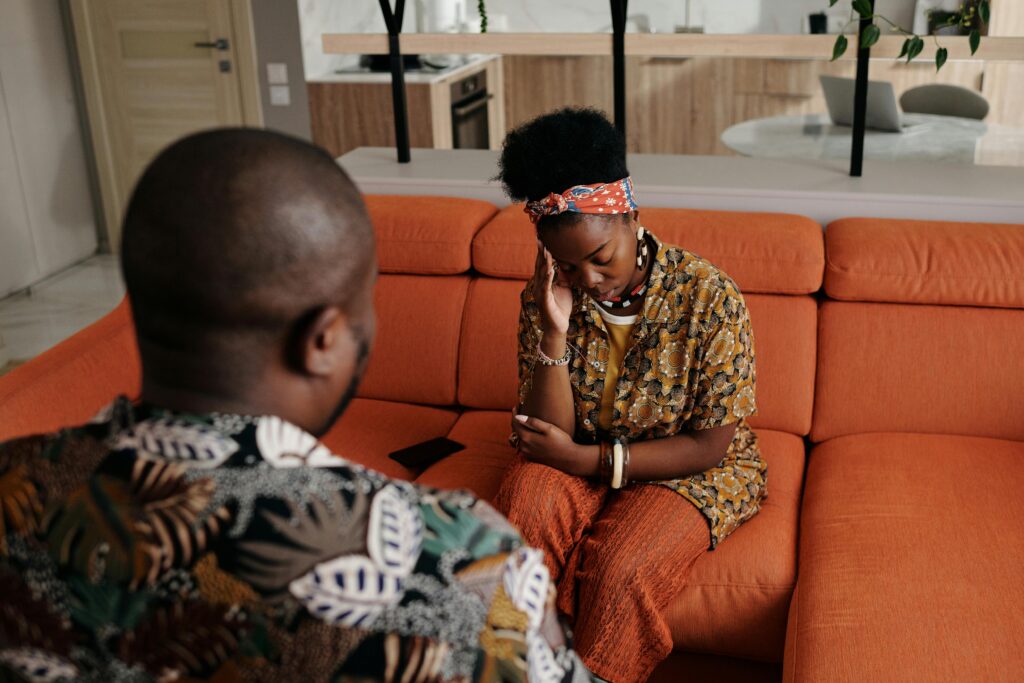Enabler, The Silence Power House Of Narcissism
In recent years, the word narcissist has become one of the most searched, most used, and most misunderstood psychological terms on social media. There are podcasts, reels, threads, and survivors telling their stories, and to be factual, many of those stories are valid. But in the noise about the narcissist, there is a dangerous silence no one is talking enough about: the enabler, and without the enabler, the narcissistic system cannot survive. The Complex Nature of Narcissism Is Complex in Cultural Context Clinically, narcissism exists on a spectrum; at the extreme end is Narcissistic Personality Disorder, a diagnosable personality disorder characterized by grandiosity, lack of empathy, entitlement, and a fragile internal self that must be defended at all costs. But narcissism does not develop in a vacuum; no one is born a narcissist. It is built, conditioned, and shaped by emotionally suppressive parenting, home-based discipline, religious misinterpretations of authority, patriarchal cultural systems, trauma, neglect, and unresolved childhood wounds. Especially in African societies, where emotional expression is often discouraged, and power is rarely questioned, narcissistic traits can be rewarded rather than challenged. The loud, dominant, unquestionable man is praised, and the emotionally suppressed boy becomes the emotionally unreachable husband. But here is what we rarely interrogate: who keeps protecting that system? The Enabler: The Quiet Architect of Dysfunction In dysfunctional family systems, everybody has a role: the narcissist, the scapegoat, the mascot, the good child, the invisible child, the caregiver, and then the enabler. The enabler is often the spouse, often the woman, and the mother. She is usually the one absorbing the emotional blows and explaining his behavior to the children. The one saying, “That’s just how he is, let’s not make him angry.” The one who smooths things over and protects the image of the family. From the outside, she looks like the victim, but psychologically, she is also participating in maintaining the system, not because she is evil or enjoys the dysfunction, but because she, too, was conditioned. The Enabler’s Mindset: A Mirror Image Here is the uncomfortable truth: What is happening in the narcissist’s head is not entirely different from what is happening in the enabler’s head. Both are trauma-conditioned and operating from survival. The narcissist controls to feel safe while the enabler submits to feel safe. The narcissist avoids accountability to protect their ego, and the enabler avoids confrontation to protect their attachment. The narcissist believes, “I must dominate to survive,” the enabler believes, “I must endure to survive.” Both are unconscious, but rooted in fear, early conditioning. The only difference is that one expresses power outwardly, and the other collapses inwardly, but unfortunately, they both sustain the dysfunction. Culture, Religion, and the Training of the Enabler In many of our communities, girls are raised to endure. The commonest phrases of conflict resolution understood by the unqualified counselors are: “Stay for the children, a good wife does not talk back, pray about it, all men are like that, just respect your husband.” In situations like this, endurance is spiritualized, silence is glorified, and self-erasure is praised as virtue. So the enabler does not see herself as enabling; she sees herself as being patient, loyal, prayerful, submissive, and strong. But what she is often doing unknowingly is teaching her children that abuse is normal, emotional neglect is acceptable, and power must never be questioned. And so the system regenerates itself in the next generation. Why You Cannot Fix Narcissism Without Addressing the Enabler You cannot stop a train if someone keeps shoveling coal into the engine. The narcissist rarely walks into therapy voluntarily, even when he does, insight is difficult because narcissistic defenses are rigid and ego-protective. But what about the enabler? She feels the pain, cries in silence, knows something is wrong, and yet she stays, explains, adjusts, absorbs, and protects. If the enabler does not break her conditioning, the system will not collapse. The narcissist may never change, but the system can, and the systems will only change when roles change. Breaking the Pattern: Healing the Enabler Healing the enabler requires: 1. Awareness: Understanding that enduring dysfunction is not a virtue. Understanding that silence is participation. 2. Rebuilding Identity: Many enablers have no self outside the relationship. Their identity is fused with being a good wife or a good mother. They must rediscover personal boundaries, emotional voice, and self-worth independent of sacrifice 3. Deconstructing Cultural Conditioning: Not everything cultural is healthy, not everything religious is correctly interpreted, and not everything that is normalized is normal. 4. Tolerating Discomfort: When an enabler stops enabling, the system shakes, the narcissist escalates, the children feel confused, and the extended family reacts. But disruption is the beginning of transformation. This Is Not an Attack on Men This is not about demonizing men, not about excusing women, and not about choosing sides, because women can be narcissists and men can be enablers. This is about understanding systems. In many African family structures, men are socially conditioned toward dominance, and women toward endurance; unfortunately, both are maladaptive when taken to extremes. If we truly want functional families, emotionally healthy children, and marriages built on mutuality rather than fear, then we must raise better men, and we must stop training better enablers. The Real Work The narcissist is loud, and the enabler is silent, but silence is not neutrality; it is a role, and until we help the enabler see her role, not to shame her, but to empower her, we will keep fighting the symptom while feeding the system. True healing begins when someone in the system becomes conscious enough to say, this pattern ends with me! And most times, that person is the one who has been silent the longest. Yes, from my years of practice, especially in Africa, I have seen that not every enabler is simply choosing dysfunction; some are surviving fear, some are economically trapped, and some are under coercive control, but awareness changes the equation. The moment you see the pattern clearly, you are no
Enabler, The Silence Power House Of Narcissism Read More »











